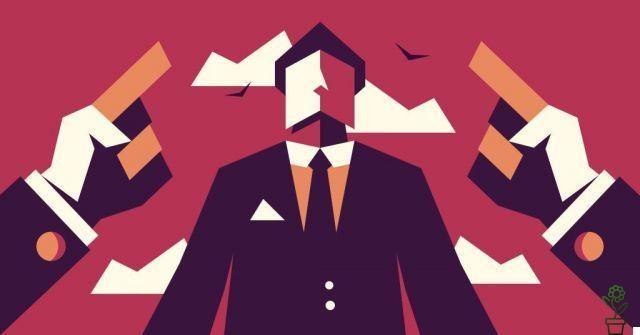
Judging is easy. Observing, without feeling the need to add adjectives, is complicated. That is why most people just judge, without trying to understand, putting aside everything that generates dissonance, disturbs and blurs their view of the world. Without wondering if their judgments bring value. Without questioning where the yardstick used to judge others comes from in two labels: "good" or "bad".
Nietzsche was aware of this. That is why he said that "moral judgment and condemnation are the preferred revenge of spiritually limited people over those who are less so than they."
It is difficult for people who see the world in black and white to understand the perspective of those who see it in color. And this misunderstanding generates a rejection, which is expressed through moral condemnation. Because anything that doesn't like or doesn't fit their limited view of the world scares them. And that fear is the compass they use to condemn others when they run out of logical arguments and ideas.
The less you think, the more you judge
Science proves Nietzsche right. Although we like to think that judgments are well-reasoned conclusions, the truth is that they are based more on intuition and social norms instilled in us, rather than on an autonomous and profound process of reflection.
Psychologists at the University of California have found that our emotions drive our intuitions, giving us the feeling that something is "right" or "wrong". They believe that judgments are the result of a re-evaluation, a process by which we attenuate the intensity of emotions by focusing on an intellectual description. That is, the judgments would be nothing more than a rationalization of what we are feeling, an attempt to "explain" our aversion.
In the experiment, the participants read stories about moral dilemmas. When they allowed people to judge the protagonists' behaviors, they classified them as negative, unpleasant, and immoral, but when they were asked to reassess the situation logically, the tendency to make moral judgments was exhausted.
The researchers concluded that "we are slaves and masters, we can be controlled, but we also have the ability to shape our emotionally charged judgments."
Princeton University neuroscientists proved this. They saw that when we make judgments of reliability by looking at people's faces, areas related to emotions, such as the amygdala, the anterior insula, the medial prefrontal cortex and the precuneus, are activated in our brains.
This means that when judgments lead to simplistic labels, they are usually the result of prejudices and preconceived ideas. It is the automatic application of the social norms that we have introjected, the expression of a dualistic world in which things are good or bad, with no middle terms.
In this regard, Nietzsche said: "in principle we are inclined to affirm that the most false judgments (synthetic judgments are part of them a priori) are the most essential for us, that man could not live if he did not admit logical fictions , if he did not measure reality with the yardstick of the purely invented world of the unconditioned, identical to itself, if he did not continually distort the world ".
Indeed, judgments often hide an atavistic fear of what we don't understand - or don't want to understand - because it requires hard intellectual work. They are the expression of the rejection of the different, looking for protection in a world made for us.
Replace judgments with observation and understanding
In the book “Beyond Good and Evil”, Nietzsche argued that the only criterion for deciding the value of a test is its ability to preserve, but above all, to favor and improve life.
"The point is to know to what extent such a judgment favors life," wrote the philosopher. He believed that judgments were worth as much as they contribute to improving man, allowing him to surpass himself, making him stronger, happy, creative, reconciled and affirmative ...
To achieve this, he states that "we must remove from ourselves the bad taste of wanting to coincide with others". It is necessary to have the courage to think for oneself by moving away from dualistic and dichotomous categories such as good and evil or right and wrong. It is necessary to open up to new ideas and learn to manage the fear generated by the different.
A good place to start is learning to observe. There are several ways of observing: observing with judgment and observing without it.
When we observe, it is difficult to separate ourselves from our scale of values, our mental maps and our way of understanding life. This is not necessarily bad, but we need to be able to take a step forward because if we only observe with the aim of judging, criticizing and condemning, we will limit our learning and will likely harm others. If we look to judge we will lose part of reality.
On the contrary, observing carefully to discover and learn will expand our universe. It is an enriching process that opens doors and fires the spark of knowledge. Therefore, it is best to leave the judgments to people who prefer to limit themselves.


























